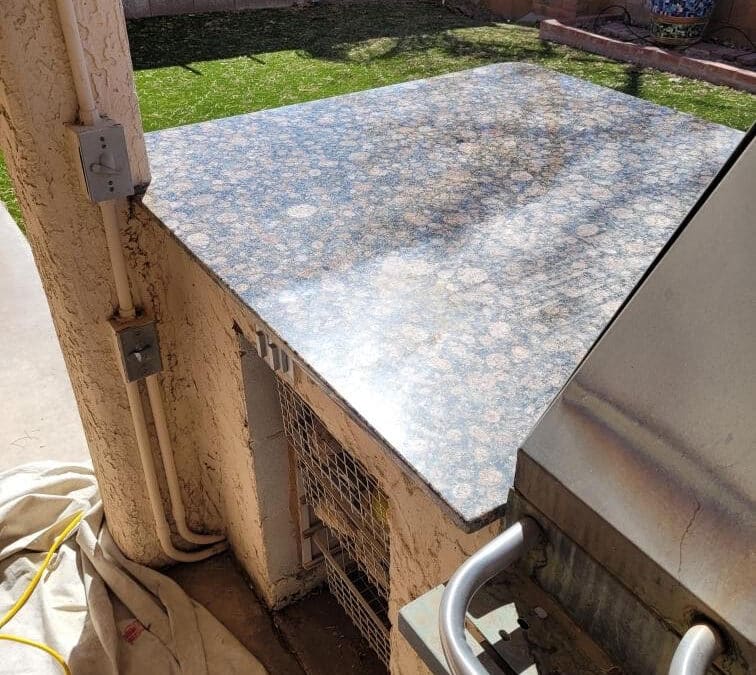Hard water is rich in calcium and magnesium, which can build up and cause visible damage to stone countertops, floors, tubs, and showers. Follow these tips to protect your marble, granite, and other stone surfaces from hard water stains.
–
From countertops and floors to tubs and shower stalls, we often think of the stone surfaces in our homes as invincible. However, despite their strong outward appearance, there are many things that can compromise the natural beauty of stone over time—including hard water.
What is hard water?
Hard water and soft water are terms you have likely heard before, and both have to do with the mineral content in the water. The former contains high quantities of calcium and magnesium (absorbed from the earth before entering the water supply), while the latter has much lower concentrations of those minerals, often the result of a water softening system.
According to the United States Geological Survey (USGS), the majority of homes in the United States have hard water. Though safe for consumption and cleaning, hard water can cause visible damage in your home. An accumulation of mineral deposits, known as scale or scaling, can lead to a crusty buildup along faucets and shower heads, as well as hard water stains on your natural stone surfaces.
Safeguard stone surfaces from hard water damage.
Hard water damage to natural stone is most often seen in places that frequently come into contact with a lot of water. This includes kitchen and bar countertops, stone tubs and showers, and even mudroom and foyer floors. When water that has been spilled or splashed is not dried properly, hard water deposits may develop after the water has evaporated from the surface; these often look like chalky white stains.
Over time, the effects of hard water can dull the look of your stone and diminish its beauty, which is why everyday care is essential.
The following simple tips can help prevent hard water damage and keep your stone surfaces looking pristine.
- Wipe up spills immediately and dry the surface thoroughly with a non-scratch, microfiber cloth.
- If you spot a water stain, you can try using a safe, non-abrasive natural stone cleaner to treat the area.
- Avoid using chemical or acidic cleaning products or abrasive scouring powders that may further damage your natural stone.
- In the bathroom, always use a squeegee after showering to help the stone dry faster.
- Regular cleaning and polishing can also help prevent water spots.
Schedule periodic cleaning and resealing.
One of the best ways to protect against hard water damage is by working with a professional stone restoration expert to regularly maintain your natural stone surfaces. We recommend scheduling an appointment every 12 months to have them cleaned and polished, and resealing them every 36 months. This will preserve their integrity and ensure they continue to look beautiful for years to come.
At AZ Stone Proz, our diligently trained craftsmen have decades of experience working with every type of stone—from marble and granite to quartz and travertine—and we take exceptional pride in restoring its original look and beauty.
Instead of enduring a costly and time-consuming replacement, contact us today to find out more about natural stone cleaning and stone refinishing.

